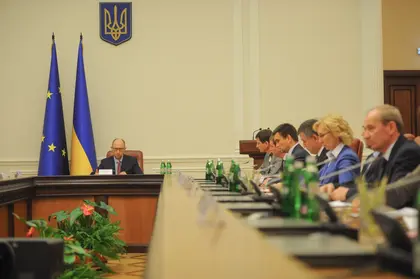The move comes after an offensive in eastern Ukraine by regular Russian troops and separatists earlier this week. Calls for joining NATO intensified in Ukraine after pro-Russian President Viktor Yanukovych was overthrown in February and gained even more prominence after Russia annexed Crimea and started sending mercenaries and weapons to the Donetsk and Luhansk oblasts earlier this year.
Ukraine’s previous bid for a NATO Membership Action Plan was made in 2008 by then-President Viktor Yushchenko, but the plans were derailed first by opposition within the NATO bloc, and then by Ukraine’s own Yanukovych who asked the parliament to approve a law making Ukraine a non-aligned country in 2010.
JOIN US ON TELEGRAM
Follow our coverage of the war on the @Kyivpost_official.
Yatseniuk said that the law cancelling the country’s non-aligned status would also prohibit it from joining pro-Russian alliances.
“After the adoption of this law, Ukraine will be banned from becoming a member of the Customs Union, Eurasian Union or any similar so-called unions that are effectively the Russian Federation’s equivalent of the U.S.S.R.,” Yatseniuk said.
On Aug. 28, the National Security and Defense Council approved cancellation of Ukraine’s non-aligned status, but the decision was not made public. The NSDC also ruled to restore conscription across the nation as of this autumn, but 18-year-old conscripts will not serve in the war zone.
“If the parliament approves it, the way to NATO will be open – and this is very right!” Interior Minister Arsen Avakov said in a Facebook post dated Aug. 29. “Only mad men can be against such a step in the current situation!”
NATO Secretary General Rogh Rasmussen said on the same day that Ukraine was free to pursue membership of the alliance.
“I’m not going to interfere in political discussions in Ukraine. But let me remind you of NATO’s decision at the Bucharest summit in 2008, according to which Ukraine ‘will become a member of NATO,’ provided of course, Ukraine so wishes and fulfills the necessary criteria,” he told journalists after an emergency meeting of NATO ambassadors with Ukraine’s envoy to the Western bloc in Brussels. “We adhere to the principle that each and every country has the right to decide [its foreign and security policy] for itself without interference from the outside”.
Though territorial disputes are usually seen as an obstacle to NATO membership, Robert Pszczel, head of the alliance’s information bureau in Moscow, said on Aug. 26 that, from the formal standpoint, Ukraine and Georgia could accede to NATO despite their conflicts with Russia and Russian-backed unrecognized states.
However, NATO will not send invitations to Ukraine and Georgia to join NATO during the Sept. 4-5 NATO summit in Wales, he said.
Ukrainian military expert Oleksiy Arestovich agreed that territorial disputes per se would not prevent Ukraine from joining NATO. However, he dismissed Yatseniuk’s statement on acceding to the alliance as campaign rhetoric in the run-up to the Oct. 26 parliamentary election.
“NATO membership is unrealistic in the near future,” he said by phone, adding that the process could only be completed after the end of the war with Russia and would take years.
Despite the uncertainty over Ukraine’s NATO membership, the alliance “expressed strong solidarity with Ukraine” in a statement issued on Aug. 29.

“Despite Moscow’s hollow denials, it is now clear that Russian troops and equipment have illegally crossed the border into eastern and southeastern Ukraine,” NATO said. “This is not an isolated action, but part of a dangerous pattern over many months to destabilize Ukraine as a sovereign nation.”
The alliance said that Russian forces were engaged in “direct military operations inside Ukraine,” and that Russia continued to supply the separatists with weapons, to fire on Ukrainian troops both from Russian territory and within Ukraine and to maintain thousands of combat-ready troops close to the borders.
“This is a blatant violation of Ukraine’s sovereignty and territorial integrity,” the bloc said. “It defies all diplomatic efforts for a peaceful solution… We condemn in the strongest terms Russia’s continued disregard of its international obligations.”
To counter Russia’s aggression, the U.S. has urged NATO member states to increase their military spending to 2 percent of gross domestic product (GDP) over the next 10 years.
The issue will be considered at next week’s summit in Wales. However, Canada is determined to block the move, a source close to the negotiations told Reuters on Aug. 28.
You can also highlight the text and press Ctrl + Enter




